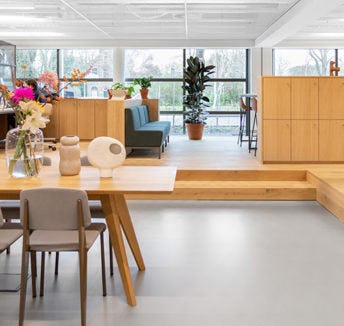
The hybrid way of working is bringing significantly lower costs for businesses of every kind and size, from the smallest start-up to global enterprises.
Office rent is typically one of a company’s biggest expenses. But the new hybrid working model – where people can work remotely at home and at local workspaces, making the occasional visit to a head office – means those costs can be considerably reduced.
According to global real estate consultancy JLL, the most expensive premium office rental markets in the world are Hong Kong, New York, Beijing and London, costing as much as US$313 per square foot in 2020. But one of the many benefits of hybrid working is that offices no longer have to accommodate all of their employees at any one time, meaning companies can downsize their workspaces. The result is a leaner corporate real estate (CRE) footprint, and the opportunity to increase profit margins.
But it’s not just at the top end of the market where significant savings can be made. For many start-ups and SMEs, every penny counts – and hybrid work is helping to reduce their overheads.
A survey of UK SMEs by Open Access Government revealed that 29% were planning to downsize offices as soon as their leases allowed. That equates to more than 1.7 million small businesses across the UK.
The report also says: “Businesses look set to save huge costs with the shift to hybrid working – overall the respondents expect to save 37% of their original office cost by downsizing their office.”
Having a smaller CRE footprint also means lower utility bills, cleaning fees and office equipment costs, contributing yet further to reduced overheads. According to Global Workplace Analytics, a typical employer can save about US$11,000 every year for every hybrid worker.
Increased flexibility benefits the bottom line
Increasingly, organisations are adopting a hub-and-spoke approach, using a number of satellite coworking spaces that are closer to employees’ homes in combination with an inner-city central office.
There is also another clear benefit to using flexspace from a trusted organisation. According to insurer Hiscox, the average mean cost of a cyber security breach for a small business in 2019 was £11,000. And every one of the hundreds of Spaces locations around the world provides safe, secure and reliable Wi-Fi.
Reduced overheads brought by hybrid working is one of ten trends identified in IWG’s white paper, The Future of Work: a trends forecast for 2022.
Find out how Spaces can help you and your company transition towards a hybrid solution.
Enjoy this? You might also like these Spaces stories:
Share this article
 Read now The trends shaping work in 2022: experience design
Read now The trends shaping work in 2022: experience design
 Read now The trends shaping work in 2022: hyper flexibility
Read now The trends shaping work in 2022: hyper flexibility